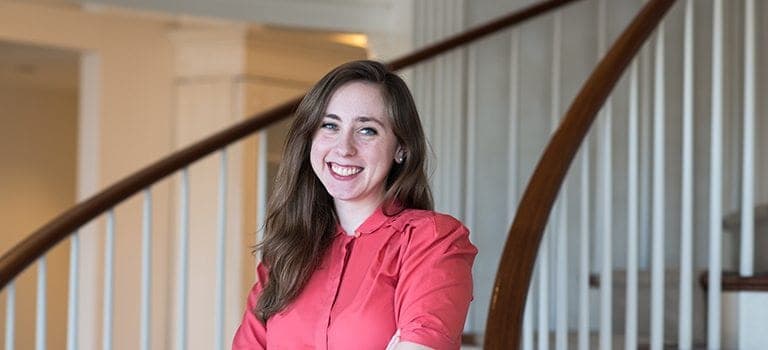Approval ratings for the media are at historic lows. For people under fifty years old, only one-in-three trusts the media.
For those of us who follow mainstream coverage of religion or morality, we know all too well about the distortions, ignorance, and (often unintentional) political slants which characterize their stories.
Far too often, specialized journalists with major-media organizations who are capable of actually crafting careful, nuanced stories are considered “religion” folks—put into their little box on the margins of the organization—and not really considered part of mainstream journalism.
An important exception to this, however, is Emma Green at The Atlantic.
Though specializing in religion stories, she has somehow found a way to be taken seriously by the mainstream gatekeepers of our public conversations. Her stories–in addition to being theologically nuanced and representative of the post-culture wars conversation–are always interesting and fair.
My hope is that, especially after reading the interview below, Crux readers will make it a point to read her stuff and/or follow her on Twitter.
Camosy: Can you talk a little bit about your history that led you to your current position with The Atlantic?
Green: I grew up in the South, which is obviously a very religious area of the country. Being in that space taught me to appreciate the depth of many people’s faith and how important faith is in a lot of people’s lives — something that can be easy to forget in communities where religion does not feature so prominently in public life.
I’m also the product of a Jesuit education — at Georgetown, I had the pleasure of studying Thomas Aquinas and Augustine with priests and Catholic scholars. That experience has proven extremely valuable in my work as a journalist, in covering the Catholic world and beyond.
During my time at The Atlantic, I’ve held a number of different positions — I was the managing editor of our website for several years, and I’ve been an editor in our politics and national sections. Ultimately, though, my heart is in writing, at least for now, and I’m excited to be covering religion (along with politics, policy, culture, etc. etc. etc.) for The Atlantic.
You seem to be one of the few journalists who clearly IDs as “covering religion” but who is taken quite seriously with the broad public sphere on a range of issues. I’ve heard theologians–and many journalists who cover religion–say that they feel marginalized in the broader public sphere once they get put into the “religion” box. How have you navigated these waters?
I see religion angles everywhere — many issues that are putatively “economic” or “political” or “cultural” are deeply rooted in people’s faith, moral views, and metaphysical commitments. I feel like I have the best beat in the world, because I get to talk with people about some of their most personal experiences and beliefs (along with the clashes of those experiences and beliefs).
I think media outlets would benefit from putting more resources toward explicit religion reporting — readers want to engage with these stories, and they’re an important part of public life.
I will say, however, that the people who do cover religion and ID as religion reporters are some of the most wonderful people I’ve met — kind, respectful of others, and whip smart. I think my peers on this beat are fabulous, and I admire them greatly.
One of the frustrations I have with media coverage, particularly when it comes to coverage of religion and controversial moral issues, is that the right/left culture wars from the 1970s are still broadly used as a way of framing stories. This has been misguided for many years now, but I wonder if this election cycle will help journalists see this more clearly. What do you think?
Agreed — I think the “culture war” is a loose and nearly meaningless frame, and a lot of the power players who shaped that era in American politics have either lost influence or died.
I think about this a lot when I’m covering Millennials’ religious experiences — the overarching themes, I’ve found, are fracture, choice, and diversity, which don’t fit neatly into a left/right template at all.
“To be determined” on what this election will bring, both in terms of American democracy and American journalism. But I do hope, like you, that people will start thinking about their subjects through alternate frames. That will make for more interesting — and accurate — coverage of religion and politics, in my view.
What other trends do you see–or hopes you have for the future–when it comes to politics, religion, public discourse, etc.?
First of all: more! As I said earlier, the dark secret of religion reporting is that readers love it — they enjoy reading the pieces, they send in excellent feedback, and sometimes they’ll even share their own stories.
I hope media outlets will invest in religion coverage, and more importantly, I hope they’ll be willing to see religion in unconventional spaces — what happens in churches or synagogues or mosques is only one small part of public religious life.
The ultimate thing I appreciate in reading other people’s work, and what I strive for in my own work, is empathy, or the attempt to understand the world as other people see and experience it. That’s something the media could always use more of; it’s something I have to work at constantly and hope to improve upon in my own writing in the years to come.
I think this is one of those life labors — an asymptotic orientation that will never be perfected, but is important to aim for nonetheless.















